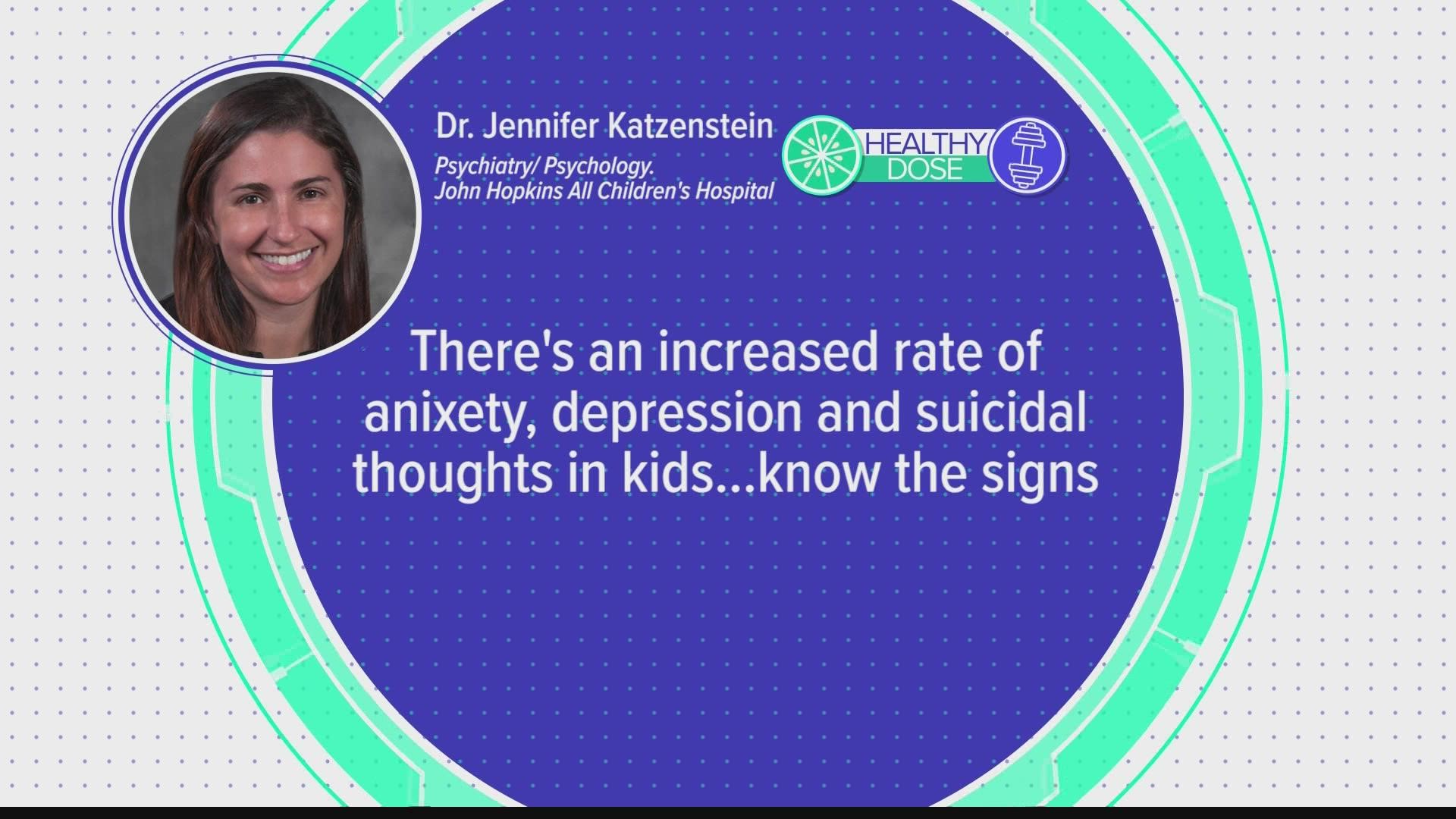TAMPA, Fla. — The pandemic has pushed a lot of people over the edge, emotionally.
While some children may be open to talking to their parents about their feelings and anxiety, Dr. Jennifer Katzenstein, director of psychology & neuropsychology at Johns Hopkins All Children’s Hospital, says she’s seen increased rates of anxiety, depression and suicidal thoughts in kids.
She says that often escalates in October, looking toward the end of the first marking period.
Dr. Katzenstein warns parents to look for early signs of struggle in their kids.
“Looking for any changes in behavior that seem out of the norm, increasing worry, increasing nervousness, lots of questions, need for more clarity in the routine," she explained.
She says when it comes to depression, there’s often a shift from activities that were previously routine or enjoyed.
“Not partaking in activities of daily living, such as showering, bathing, not caring about their appearance so much anymore or things they used to enjoy,” she adds.
That may also follow with mood changes including irritability and being easily set off. She suggests monitoring their involvements online and pressing for conversation.
"Knowing who they’re talking to, what apps they’re using, having a time set aside daily, where you spend a few minutes chatting," she says.
Dr. Katzenstein says do more listening than talking, “what’s been going on, tell me a little bit about your day, not asking a lot of questions over and over, really sitting and waiting for that response.”
For younger kids, preschoolers and below, who may be less verbal about their feelings, Dr. Katzenstein says be aware of changes in patterns.
In younger kids, especially toddlers, look for any changes in sleep patters. Check on them if they're getting up more often at night or having trouble going to sleep. Also look for changes in appetite or activity level.
Stress may also impact their bathroom habits, like previously potty-trained kids having more accidents.
“Sleep, appetite, potty training is a huge one. Having more unprovoked outbursts or more temper tantrums, or really disruptive behavior that wasn’t there before. That can be a red flag that something else is going on," Dr. Katzenstein says.
She adds that’s when it’s time to reach out to your pediatrician or a child psychiatrist.

